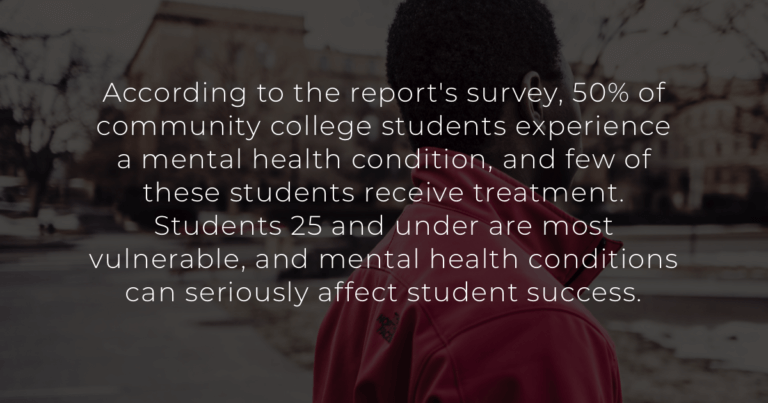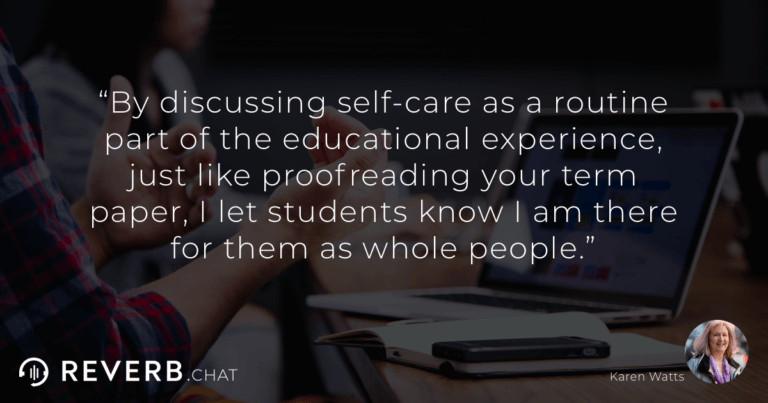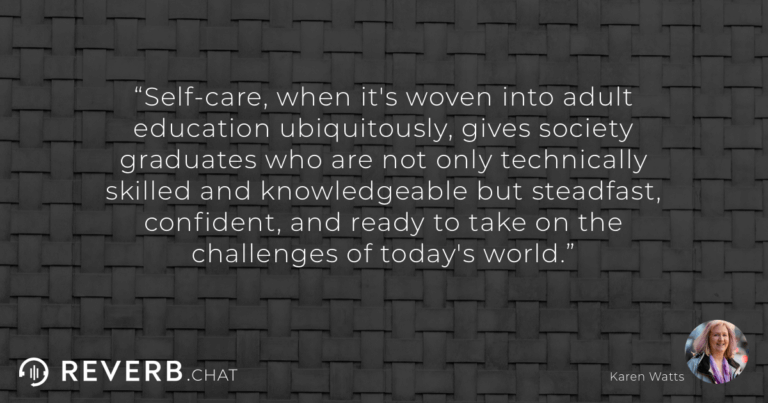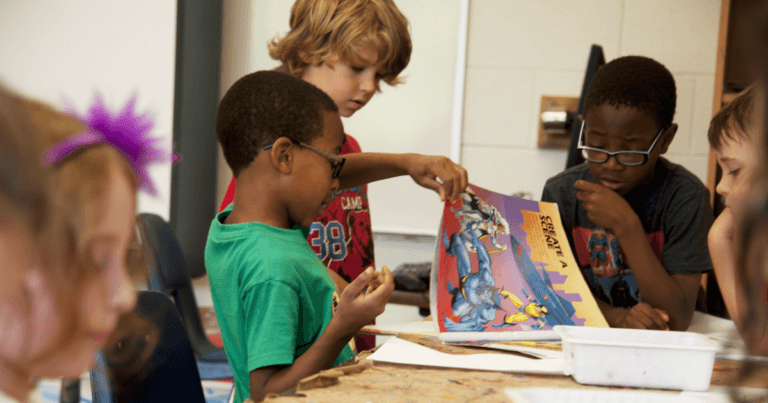The author’s views are entirely his or her own and may not always reflect the views of Reverb.
In the last couple of years, and especially since the COVID-19 pandemic, I’ve become extremely passionate about self-care as a component of education.
I’ve worked in adult education for the last 20-years, and frankly, you need passion and calling to balance some of the realities of the profession. Though there are many aspects of the industry I have strong beliefs about, self-care is perhaps top of my list.
Too Distressed to Learn
In my area of work (two-year colleges), I think a sea change moment was the publication of the report, Too Distressed to Learn.
This report highlighted the vast amount of mental health challenges in our student populations.

Adult learners that I work with often have jobs, family responsibilities, and serious financial hurdles between them and their educational goals.
College is stressful, and students were already vulnerable before the pandemic. Now it’s all turned up to eleven.
Combating student mental health issues on an institutional level
What are institutions doing?
They’re providing lots of support services, giving additional training on how to use technology, and ramping up communication to be responsive to student needs.
The success of these methodologies can vary a lot between institutions, however.
Educational and community organizations have made available webinars (I’ve attended many in the last six months) on topics from “how to teach more effectively online” to “understanding the problems of racism and stress from the student’s point of view.”
Being pushed into lockdown has created a blossoming of professional development materials.
What I’m doing
What do I do?
In my online Humanities 101 course, I offer bonus points on class discussions for self-care.
The prompts are phrased differently for each new class of students, and take their personalities and lived realities into account.
By discussing self-care as a routine part of the educational experience, just like proofreading your term paper, I let students know I am there for them as whole people.
Over the years, I’ve seen and given points for everything from the fun and silly, such as family game nights and naps with toddlers, to the serious. I also allow students to email privately if they don’t want to post or share.
Students have reported to me things like eating a healthy meal while dealing with an eating disorder, making an appointment for therapy, and having a difficult conversation with a boss about being overworked.
In each case, students told me that not only earning the points for class but knowing I was supporting them gave them the final motivation to follow through.
The bottom line
College, even when it’s a virtual classroom, can be the connecting tissue between a student and essential resources.
It’s not enough to teach subject matter. If you don’t care about your students as whole people, who are—just like you—pushing to find a balanced and fulfilling life, then perhaps teaching isn’t for you.
Self-care, when it’s woven into adult education ubiquitously, gives society graduates who are not only technically skilled and knowledgeable but steadfast, confident, and ready to take on the challenges of today’s world.







